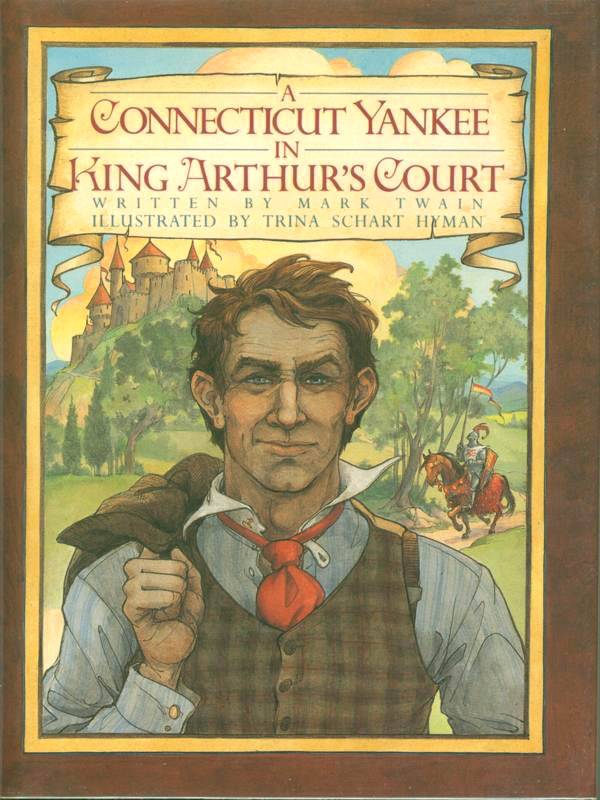In a Connecticut Yankee, Twain portrays Hank as the individual that he has always aspired to be: logical, analytical, and pragmatic. The overarching theme explicated by Hank’s criticisms, however, espouses the notion that he feels superiority bestowed upon him—not in the form of inherited power, but in the form of knowledge, which shapes and carves his interactions with the people of Camelot. Although Hank thinks that he is ultimately superior to Merlin—and in general to the common men of Camelot—it is not long before the reader can explicitly gauge how benighted Hank is with regards to his perceptions.
Throughout the book so far, Hank remains bent upon the notion of his being superior to the noblemen of Camelot primarily because he has ascertained that the power they have is inherited and not earned on “merit”. A person who values personal abilities and merits a lot, Hank feels that his logic, analysis, and critiques stand him in an exceedingly favorable stead because he feel as if he has earned (rather than inherited) those attributes. This notion also becomes clearer when Hank repeatedly mocks the people of Camelot in his characteristic satirical ways and, at one instance, exclaims “There, never mind, let it go; you make me tired. You can’t seem to understand the simplest thing.” This remark delineates a picture of Hank’s perspective; Hank thinks that the people of Camelot are not wise enough to understand even the most basic concepts, leave alone abstruse concepts like logic, which he holds dear to himself.
However, as the book progresses, we see that Hank and Merlin have several stark contrasts that render Hank, despite all his latent preeminence, unfit for the culture of Camelot. For one, Hank hovers at the intersection of the dominance of the noblemen of Camelot, and the submissiveness of the common men in Camelot. Hank, who vehemently advocates personal attributes and merits, detests the noblemen of Camelot since he deems them unskillful people who are where they are due to inherited power. On the other hand, Hank does not identify himself with the common people of Camelot either due to his mislead vanity; unfortunately, Hank thinks that he is too erudite to be “one of them (common men)”.
On the contrary, Merlin knows how to adapt to the needs and wants of the time and of Camelot; Merlin knows well how to make his place amongst the people of Camelot by identifying with them intellectually and physically. Since Merlin’s point of view, in addition to his persona, is also mellifluous with the thought processes that the people of Camelot so carefully portray, he knows how to attain his supreme power through an in-depth understanding of Camelot and its people. This is, in my view, the one major stark difference that enervates Hank’s self-proclaimed yet erroneous images of his superiority and instead gives Merlin the ultimate dominance over Hank, and that too to an extent that is all but easily ignorable for a reader perusing Camelot’s situation on this day.






